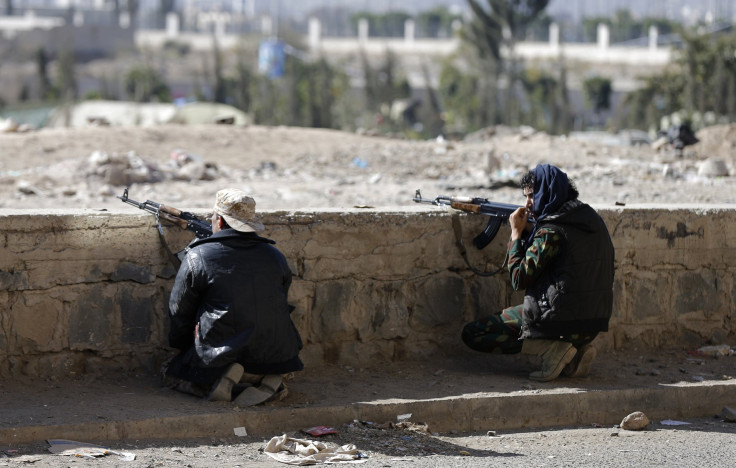How Instability In Yemen Could Affect World Oil Trade

A possible coup d'etat in Yemen is threatening not only the security of the Yemeni capital and the stability of the government led by President Abed Rabbo Mansour Hadi. It also poses a danger to the world's oil supply, as Yemen controls the strait through which many oil tankers must pass on their way from the Mediterranean Sea to the Indian Ocean and vice versa.
Shiite Houthi rebels have taken the presidential palace in Sana’a, and if they gain power throughout the country, Yemen’s economic infrastructure -- especially its oil production -- is in danger of collapsing.
A Houthi takeover would threaten the ability of the central government to control the Bab el-Mandeb strait, which separates the Arabian Peninsula from East Africa and links the Red Sea with the Indian Ocean. About 8 percent of world trade travels through the strait, including about 4 percent of the world’s oil and petroleum products, according to the U.S. Energy Information Administration. And that percentage is increasing every year. If the Houthi rebels and the central government do not come to an agreement, or if violence in the capital escalates, one of the main oil transit routes could close.
“Closure of the Bab el-Mandeb could keep tankers from the Persian Gulf from reaching the Suez Canal or SUMED Pipeline, diverting them around the southern tip of Africa, adding to transit time and cost,” a report published by the EIA in November said. “In addition, European and North African southbound oil flows could no longer take the most direct route to Asian markets via the Suez Canal and Bab el-Mandeb.” The SUMED pipeline, also known as the Suez-Mediterranean, is a pipeline in Egypt that runs from Ain Sukhna to a port offshore from Alexandria. It is the main alternative to the Suez Canal for transporting oil from the Persion Gulf region to the Mediterranean.
The closure of Bab el-Mandeb would force oil companies to make longer journeys to deliver Middle Eastern oil via tanker.
Yemen, the poorest country in the Arabian Peninsula with a GDP per capita less than one-tenth of neighboring Saudi Arabia, also cannot afford risking the closure of Bab el-Mandeb. The country is already facing trouble exporting its oil, which makes up more than 57 percent of Yemen's total exports. (Petroleum gas makes up another 22 percent.) It will face even more after government officials on Wednesday closed the country's main port, in the southern city of Aden, as Houthi rebels expanded their grip in the capital and took over a major military base.
Tensions have been running high in perpetually unstable Yemen ever since Houthi supporters protested in the streets this summer. The Houthis captured Sana'a in September last year, except the presidential palace, and, following the takeover, signed a power-sharing deal with the government, angering Sunnis. The violence in the capital intensified after Houthis protested the nomination of a new prime minister by the president. Houthi leaders said they were not consulted and did not agree to the choice.
After more than a month of clashes and political infighting, the Houthi rebels showed in October that they were willing to negotiate Yemen's future with President Hadi. Rebel leaders gave Hadi 10 days to form a new government. If the president refused, the rebels said, they would present the country with an alternative government of their own choosing. The United Nations special envoy to Yemen, Jamal Benomar, has been holding negotiations with the two groups since.
The seizure of the presidential palace on Tuesday was the last attempt by the Houthi rebels to take over the capital completely, calling for more opportunities and representation in the Yemeni government.
It is not yet clear if the Houthi rebels will demand control of the government or if they will negotiate with the U.N. and other Yemeni officials. The Houthi rebels have significant support in the capital, but they lack support outside Sana'a.
© Copyright IBTimes 2024. All rights reserved.




















